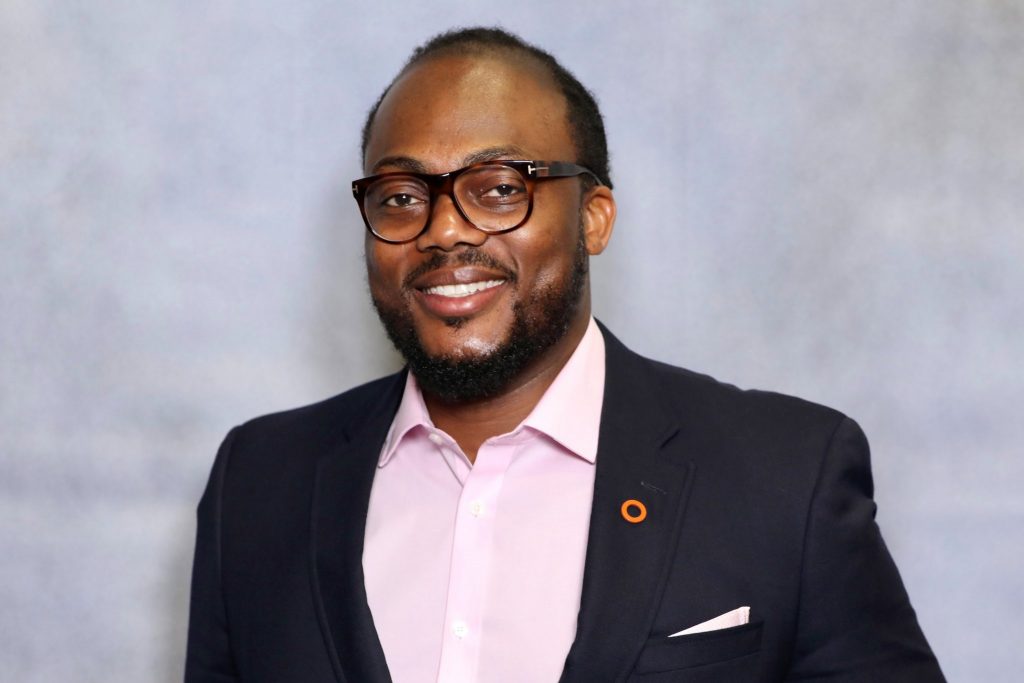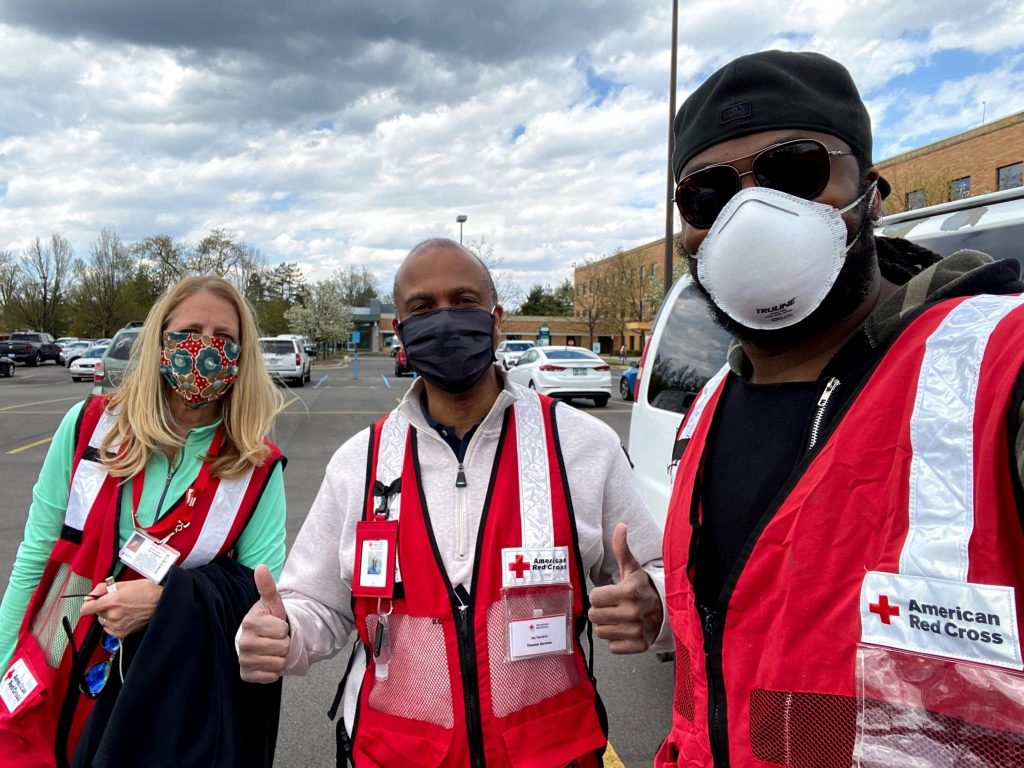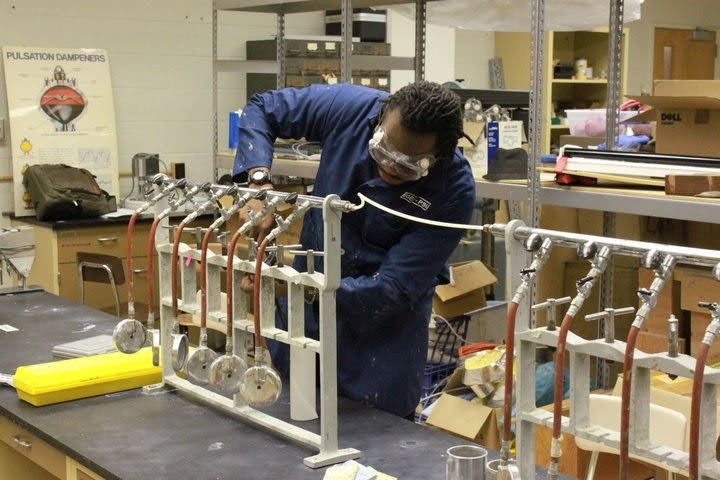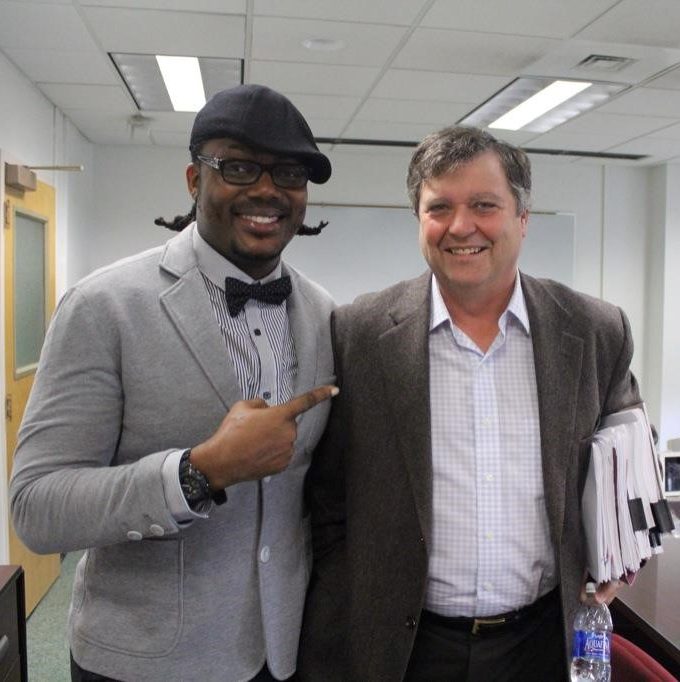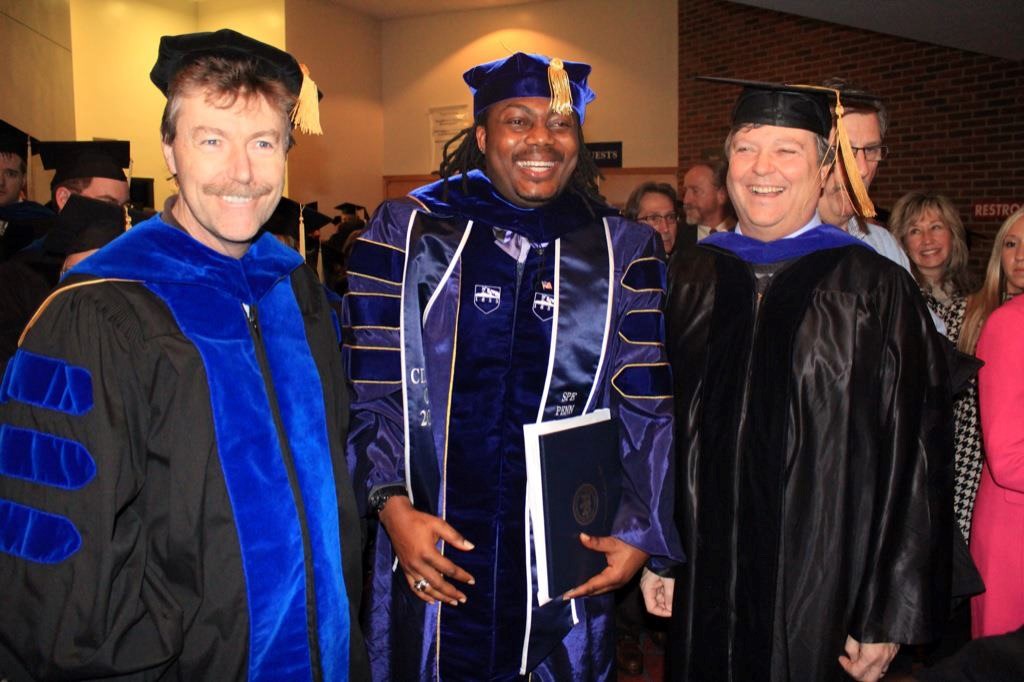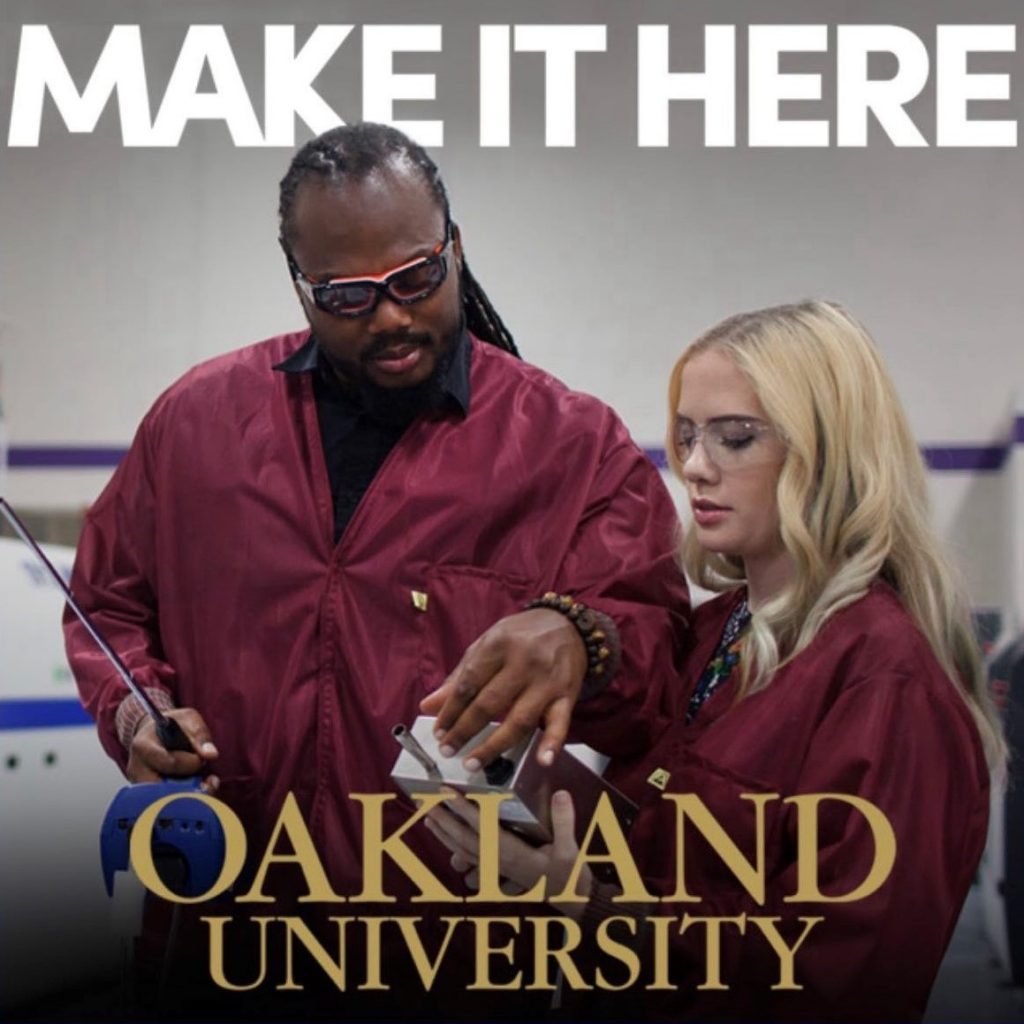Richard Olawoyin uses his multidisciplinary expertise to benefit the world through safety and sustainability. His research and instruction focus on the interaction between humans and emerging technologies, and the resulting safety risks.
An associate professor of industrial and systems engineering at Oakland University, he’s making an impact on the next generation of safety professionals and on the future of higher education as a member of the Applied and Natural Science Accreditation Commission (ANSAC) and a founding member of the Inclusion, Diversity and Equity Advisory Council (IDEAC) of ABET.
Olawoyin didn’t follow a straight path to academia, but he credits the diversity of his background and many mentors for guiding him to where he is today.
Beginnings
Growing up in the city of Lagos in Western Nigeria, Olawoyin was always studying the world around him and asking questions about it. His parents encouraged him to become a doctor — perhaps he could use that curiosity to find a cure for cancer or solve other ailments afflicting the human body.
“I was a very inquisitive teenager,” Olawoyin reflected. “I read a lot of books and I remember reading about crude oil and making an analogy that, in many ways, crude oil was similar to blood as an energy source. So, I figured I would focus on that rather than focusing on human blood.” Since High School, he has been a volunteer member of the American Red Cross (ARC), providing support for people impacted by disasters.
Olawoyin uses his innate curiosity to understand and optimize the systems within our physical environment. The multidisciplinary nature of his research in science and engineering and experience in industry and academia has helped him pursue his passion in systems engineering with application areas in energy systems, environmental systems and industrial systems safety.
“I’ve remained focused, guided by my passion for helping people,” Olawoyin concluded. “My work is to be able to look at ways in which we can optimize the system right now, where the system itself provides health and wealth to people prior to getting to the level of being sick and even when they are sick.”
Education
Motivated by a desire to understand the natural environment, Olawoyin embodies continuous improvement — he is always observing, asking questions and learning something new.
“In our physical environment, I look at what we can do in this system to be able to optimize the well-being of people within it,” he explained. “What can we provide for humans? What are the complex questions that we can solve in a particular system? That’s what gets me really excited.”
Olawoyin began his studies at the University of Calabar as a physics major but switched to geology (concentration in geophysics) to gain a better understanding of how humans interact with the earth. The learning experience that inspired a later career in engineering.
After earning his bachelor’s degree, Olawoyin secured a position as a geologist for Shell Petroleum. He then worked as an environmental health and safety consultant before leaving industry to work as a model and actor in Paris, Nigeria and the United States. Uninspired by his work experiences, Olawoyin decided to go back to school to earn his master’s degree.
The Value of Mentorship
After gaining admission to the energy and mineral engineering program at Pennsylvania State University, the graduate program coordinator at the time, Professor Emeritus Robert Larry Grayson, asked him to visit campus at University Park, Pennsylvania. Olawoyin vividly remembers his first meeting with Grayson, who would become an influential mentor in his life.
Grayson welcomed him into his office and after a bit of chatting, Olawoyin was flattered when Grayson said that he reminded him of a younger version of himself. Later that same day, he also told Olawoyin that he seemed like he’d be a great teacher.
Olawoyin chuckled as he recalled thinking, “Me, a teacher? I don’t know about that!”
Olawoyin had only applied to the master’s degree program, but after his first two semesters at Penn State, Grayson called him into his office and offered him the opportunity to enroll in the Ph.D. program.
“I was very, very excited because at that point, I’d never seriously thought about getting a Ph.D. — it was at the back of my mind, but it wasn’t until he added his voice that gave me that push,” Olawoyin said.
Grayson was Olawoyin’s core advisor for his Ph.D., co-published his first paper with him, collaborated with him on his first grant proposal and even supported him in the classroom during his first years of teaching as a graduate student. Immediately after Olawoyin finished presenting his thesis and defending his dissertation, Grayson congratulated him and reiterated how great he was at teaching.
“Professor Larry Grayson actually contributed a lot to my becoming an educator,” Olawoyin observed. “He helped me see the difference between what I was looking for and what I was trying to do — to be out there sharing knowledge, developing new solutions and helping people as much as possible, across the board. And I just needed the tools to actually get that done.”
Although Olawoyin had a job offer on the table in industry, with Grayson’s help, he was able to see how much more of an impact he could make by entering academia.
Giving Back
Now, as an associate professor of engineering in industrial and systems engineering at Oakland University in Michigan, Olawoyin has three main responsibilities: teaching, scholarship, and service. Since joining the faculty in 2014, he’s been the faculty advisor for the National Society of Black Engineers (NSBE) and he currently serves as the vice president for the Black Faculty Association at Oakland.
Olawoyin considers mentorship to be the key part of his role not only on students’ academic paths, but also on their career paths. By interconnecting his teaching and research with his service, he’s able to mentor students in different forms across the board.
“One of my greatest interests is to be able to reach students at their point of need,” Olawoyin explained. “Mentoring comes in many different forms — from teaching, working with them collaboratively to learn how to do research and also how to seek funding, providing support resources, reference letters and advice.”
Olawoyin serves his community as a volunteer for ARC and supported operations during the Flint Water Crisis. He currently serves as the Disaster Cycling Services (DCS) Recognition & Appreciation Regional Lead for the Michigan Region.
Olawoyin also serves his profession and the engineering community through the American Society of Safety Professionals (ASSP) and ABET. He has been a member of ASSP since joining the student chapter while in school. Olawoyin was inspired by his program director at Oakland and 2009-2010 ANSAC Chair Charles McGlothlin to get involved with ABET. In 2014, he was nominated by ASSP to serve as an ABET Program Evaluator and in 2017, he was appointed by the Applied and Natural Science Area Delegation to serve on the ANSAC of ABET.
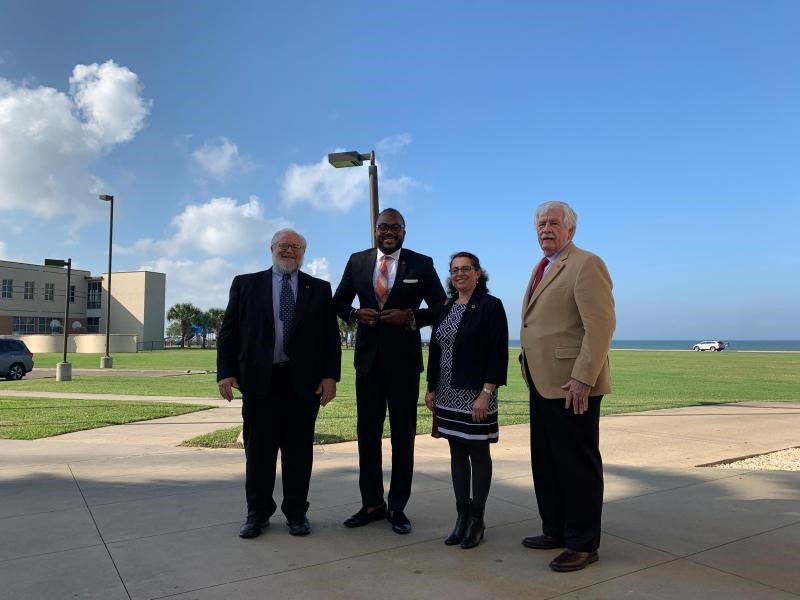
Since then, he’s served on its Accreditation Council Training Committee, Online/Hybrid Programs Training Subcommittee and as a program evaluator mentor. In 2019, he was appointed to the Inclusion, Diversity and Equity Advisory (IDEA) Council of ABET, which launched in the spring of 2020 and is chaired by another of Olawoyin’s mentors, Mary Leigh Wolfe.
“ABET is leading into the future because ABET believes that this is not a monolithic or homogeneous society,” said Olawoyin. “When we embed diversity, equity and inclusion in our operations, we are actually stronger as a body. We are stronger together.”
Olawoyin is grateful that his work with his professional organizations allows him to reach a broader student body outside of Oakland University. Whenever he goes on program accreditation visits as a program evaluator, he provides opportunities for the students to ask him questions and reach out for career advice.
“I let them know that there are opportunities out there for you to be able to network with other technical professionals and also contribute,” he said. “Giving back is the best form of doing something meaningful professionally. And that’s what I’ve done with ABET.”
